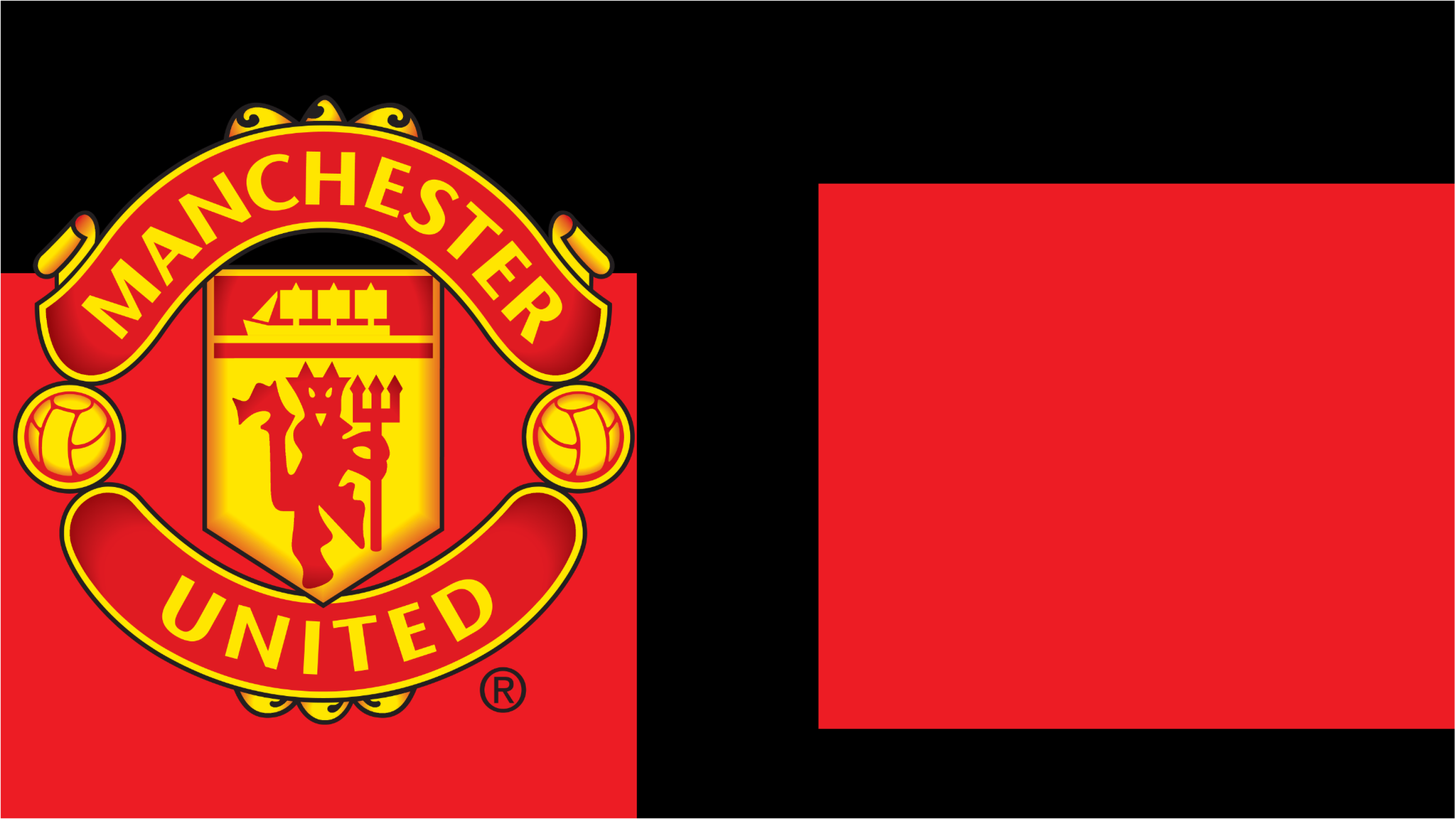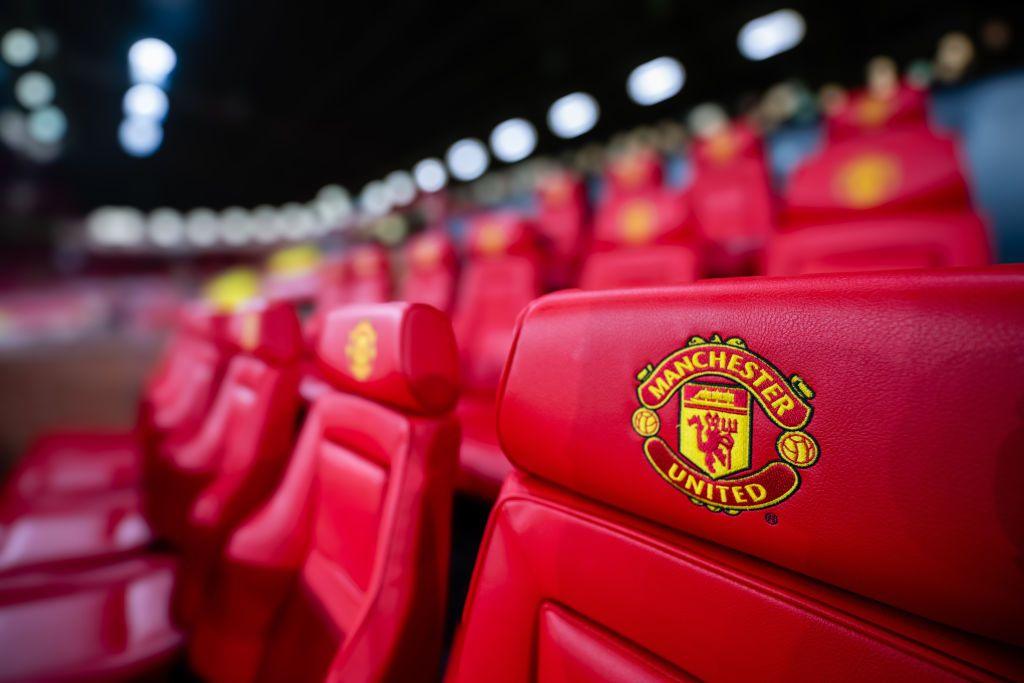How are Man Utd able to afford Sesko?
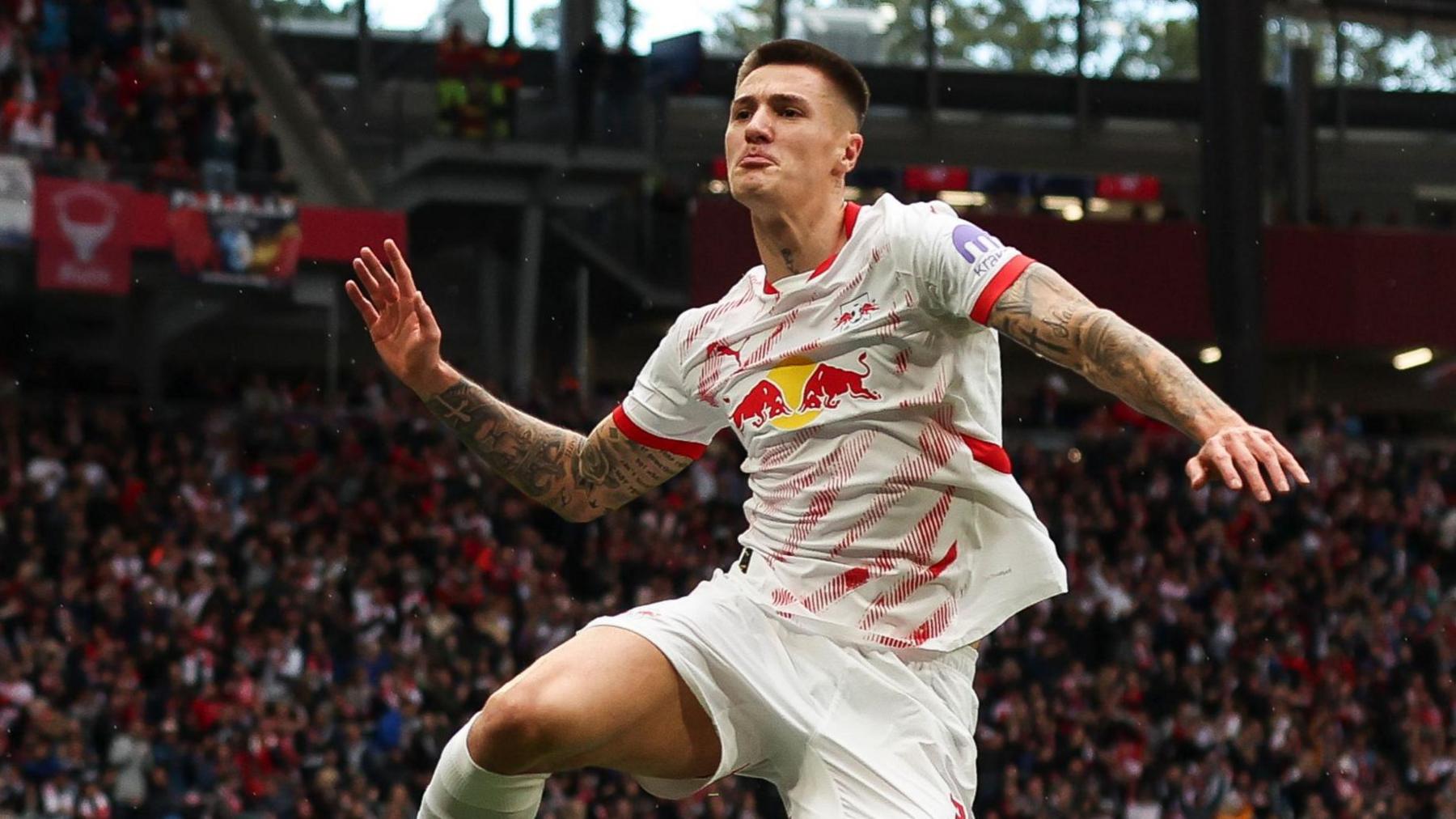
Benjamin Sesko has scored double figures in all five of his full professional seasons for RB Leipzig, Red Bull Salzburg and FC Liefering
- Published
Whether about a raft of redundancies or free lunches for staff being scrapped, news surrounding Manchester United's finances has not been positive.
Which will have left fans wondering how they are able to fund a move for RB Leipzig striker Benjamin Sesko, amid a £200m refurbishment of their attack for next season.
The answer lies in some clever financing of their summer transfers both in and out – and some of the reports of their debt being greatly exaggerated.
"If Manchester United sneeze, football catches a cold," football finance expert Kieran Maguire told BBC Sport.
"It is the biggest brand in English football. The redundancies do look severe, but that is the Ineos business model, they have done that at other companies. Whether it will work in football, we have to wait and see."
United sources previously outlined to the BBC's chief football news reporter Simon Stone how it is possible for them to reach an agreement on Sesko, even though co-owner Sir Jim Ratcliffe said earlier this year there was the potential for the club to go bust by Christmas without massive cost-cutting measures.
Payment arrangements totalling £130m for the deals this summer for Matheus Cunha and Bryan Mbeumo, from Wolves and Brentford respectively, have been arranged in a favourable way.
It is likely any deal for Sesko would be arranged similarly, with the payment spread over the length of the player's contract.
In addition, the entirety of Marcus Rashford's £325,000-a-week salary is being covered by his loan move to Barcelona and Manchester United received £5m from Chelsea after the Blues pulled out of a deal to sign Jadon Sancho.
Manchester United have also received more than £15m in payments as part of sell-on clauses involving Anthony Elanga, Alvaro Carreras and Maxi Oyedele.
Get in touch
Send us your questions
'Some of the scare stories were overblown'
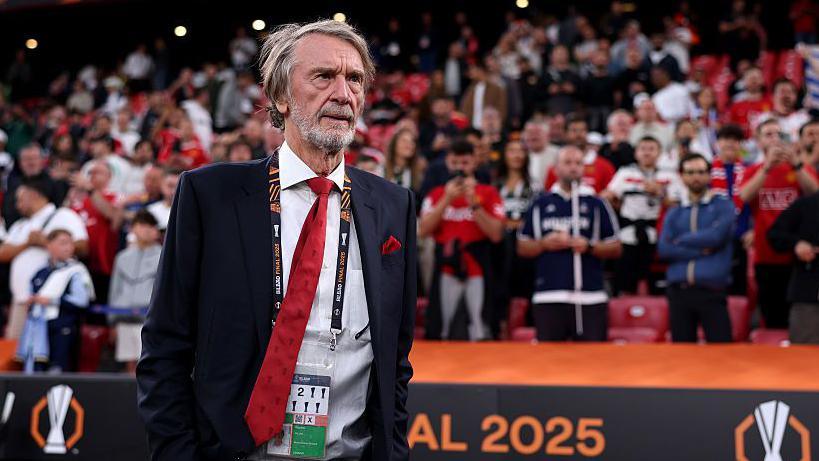
Ineos CEO Jim Ratcliffe is a minority shareholder at Manchester United, but is in charge of football operations
They also sold academy products Mason Greenwood and Scott McTominay last summer, and will aim to sell several other unwanted or wantaway players before this window closes, including Alejandro Garnacho.
"Even if their signings come to £200m, it is £40m a year and they will recover that by selling players in the 'bomb squad'," Maguire said.
United also raised money by reaching the Europa League final last season and despite their struggles on the pitch - including a lowest finish in the Premier League era last season - remain a commercial juggernaut.
In June, the club revealed an annual core profit forecast of £180m-£190m, up from an earlier projection of £145m-£160m.
United's bid for Sesko could rise to £73.8m, but includes a guaranteed payment of £65.2m. If this is what they pay for the 22-year-old Slovenian, it will take their overall transfer expenditure this summer to £180m, the third highest in the Premier League, external after Liverpool and Chelsea.
"Some of the scare stories put about a few months ago were perhaps a bit overblown," Maguire said.
"Man Utd is not as successful as a business as they would like to be, but they are still successful. For example their wage bill is around half of their income, which is very good by Premier League standards."
This all comes after Ratcliffe said United came close to running out of cash this year.
"We are in the process of change and it's an uncomfortable period and disruptive and I do feel sympathy with the fans," he told the BBC.
'Man Utd are not in as good a position as Liverpool or Chelsea'
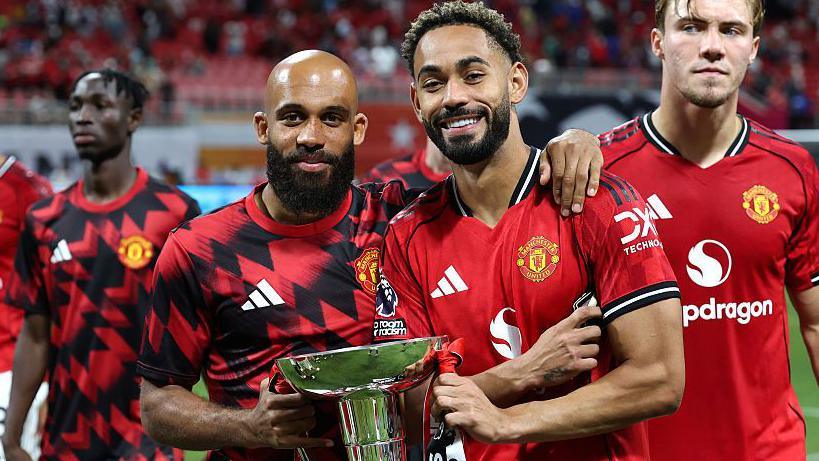
Man Utd have also signed Bryan Mbuemo (centre-left) and Matheus Cunha (centre-right) this summer
Ratcliffe said costs had risen and the club had been spending more than it earned for seven seasons.
"If you spend more than you earn eventually that's the road to ruin," he said.
However, he did also say United would look to spend on players in this transfer window.
"Where do you want to spend the money? Do you want to spend it on operating the club, or do you want to spend it on the squad?
"What we want to do is invest in the best players in the world if we can, rather than spend it on, I'm afraid, free lunches."
Things are not wholly rosy at Old Trafford, however,
If Sesko signs, manager Ruben Amorim will have to sell first to finance any further reinforcements to his squad.
The club lost £131m in the 2023-24 financial year. And while quite a bit of that was interest and the costs of the Ineos takeover, which doesn't count towards PSR, it is still not emblematic of a club in rude health.
"Man Utd can't spend as much as Liverpool and Chelsea," said Maguire. "Of the 'big six', Man Utd are not in as good a position.
"But they are still in a good position. They have the biggest stadium, so the highest matchday revenues, and have one of highest commercial revenues. They are an attractive brand."
This article is the latest from BBC Sport's Ask Me Anything team.
What is Ask Me Anything?
Ask Me Anything is a service dedicated to answering your questions.
We want to reward your time by telling you things you do not know and reminding you of things you do.
The team will find out everything you need to know and be able to call upon a network of contacts including our experts and pundits.
We will be answering your questions from the heart of the BBC Sport newsroom, and going behind the scenes at some of the world's biggest sporting events.
Our coverage will span the BBC Sport website, app, social media and YouTube accounts, plus BBC TV and radio.
Related topics
- Published26 July 2022
